Fish food comes in many forms- slow sinking pellets, sinking too fast pellets, powder, liquid, flakes, pulverized flakes, frozen, freeze dried, jellified, fresh from the ocean, fresh from the fish market, you name it. But the way we feed our fish is quite similar amongst us fishkeepers- we either drop the food directly into the high flow area of our tank(s) or target feed using various feeding tools available on the market. That method works 90% of the time – almost all animals living in the aquarium get their share of the food floating in the water- but sometimes it doesn’t. Some reef fish have specific feeding habits, like the wrasses that constantly search for edible items in live rock’s nooks and crannies. Others simply won’t take food from the water column or won’t take prepared food at all.
What if I told you there’s a new type of food, one that you can form into shapes like play dough and stick to any surface inside the tank, one that might help with feeding finicky eaters? It’s real and it’s finally here on our side of the Atlantic- easyreefs Masstick.
What is Masstick?
Masstick is like no other food I’ve tried. First of all, it is meant to be used as reef fish food, yet it comes in a powdered form, like coral food. Add a precise amount of RO/DI water to it (more on that later) and it undergoes a transformation from a powder to a malleable solid with the consistency of cake dough. The particles bond together strong enough that the substance doesn’t crumble when kneaded, but soft enough that it can be molded into desired shapes or smeared against a piece of rock or feeding tongs. Second, and an even more interesting characteristic of Masstick, is its excellent stickiness- when properly mixed with RO/DI water, it adheres to reef structures with ease, like an epoxy putty, but better. In fact, it’s so sticky you can press it right onto the glass like chewing gum and it stays there until your fish eat every last bite. Let me explain how it works by walking you through the process of turning Masstick into a powerful feeding “tool”.
Kneading class
Masstick is sold in several different amounts; the smallest 14g package is what I received for this review and what I would recommend to anyone wanting to try the food for him/herself. The package consists of a transparent ziplock bag residing inside a more heavy duty aluminum bag with basic information printed in several languages on stickers on the front and back of the package. Larger packages are available, including multiple 14g bags or, as in the case of the 100g package, in bulk.
The inner ziplock doubles as a kneading container- add the right amount of water, preferably with a syringe (the ratio is 2g of masstick to 1ml of RO/DI water), close the bag, and knead until the resulting “dough” is uniform, which takes about two minutes of showing off your cake making skills.
When Masstick is ready to use, you simply rip off a piece, form it into the desired shape, and stick it to wherever you think your fish will find it quickly. There are two techniques that I have been using when feeding Masstick to my fish:
- I stick a chick pea sized piece onto the front glass panel of my tank, towards the left side; I repeat the process on the other side, so there is not too much competition for the food
- I take pieces of rock or frag plugs, smear Maasstick on them, and drop them to the bottom for gobies and (unfortunately) cleaner shrimps, which are very good at taking it all for themselves
The unused part of Masstick can be stored in the fridge or freezer for up to 5 weeks from the time it is first mixed. You can also mix other types of food, like mysis or phytoplankton, in with the powder before adding water, and it will not lose its sticky properties. It dissolves very slowly; a US quarter sized piece provides food (and entertainment on the hobbyist side of the glass) for hours.
What’s in it?
Short answer is- the usual stuff. The main ingredient of Masstick is freeze dried Common Ditch Shrimp (Palaemon varians), harvested in the “Veta La Palma” Natural Space near easyreefs’ production facility in Spain. It’s mixed with freeze dried micro- and macroalgae. You can read the entire Technical Data, as well as complete Nutritional profile here: http://www.easyreefs.com/en/masstick_technical-data.html
Fish like it!
There is an ultimate test every fish food I review must pass in order for me to give it a good rating, and it’s the obvious one- the “Will my fish eat it?” test. After all, no aquarium fish food can be considered worthy if fish refuse to eat it. Let me tell you that- besides presenting an interesting new way of feeding reef animals, Masstick also achieved something no other food (except for Mysis) has – every single fish in my tank ate it. Easyreefs advertises Masstick as a perfect food for finicky eaters and I approve this message. I have about 15 different fish in the tank, three of which- a male and female Leopard Wrasse (Macropharyngodon meleagris) and the finickiest of them all, a Copperband Butterflyfish (Chelmon rostratus), refuse to eat anything but frozen Mysis shrimp. Until now- check out the video and pictures I took after introducing Masstick to the tank for few days:
Verdict
I’ve been excited to try easyreefs Masstick since the moment I saw it at MACNA 2017 in New Orleans and, to my pleasant surprise, it exceeded my expectations greatly. The food is a magnet for fish and has proven to be an excellent alternative to frozen food for finicky eaters. I don’t know which ingredient makes fish go crazy for Masstick, but the results speak for themselves. Try it, you won’t be disappointed.
To learn more about Masstick and easyreefs’ other products, visit: http://www.easyreefs.com
Thanks to https://www.saltwateraquarium.com/ for sending us a sample!

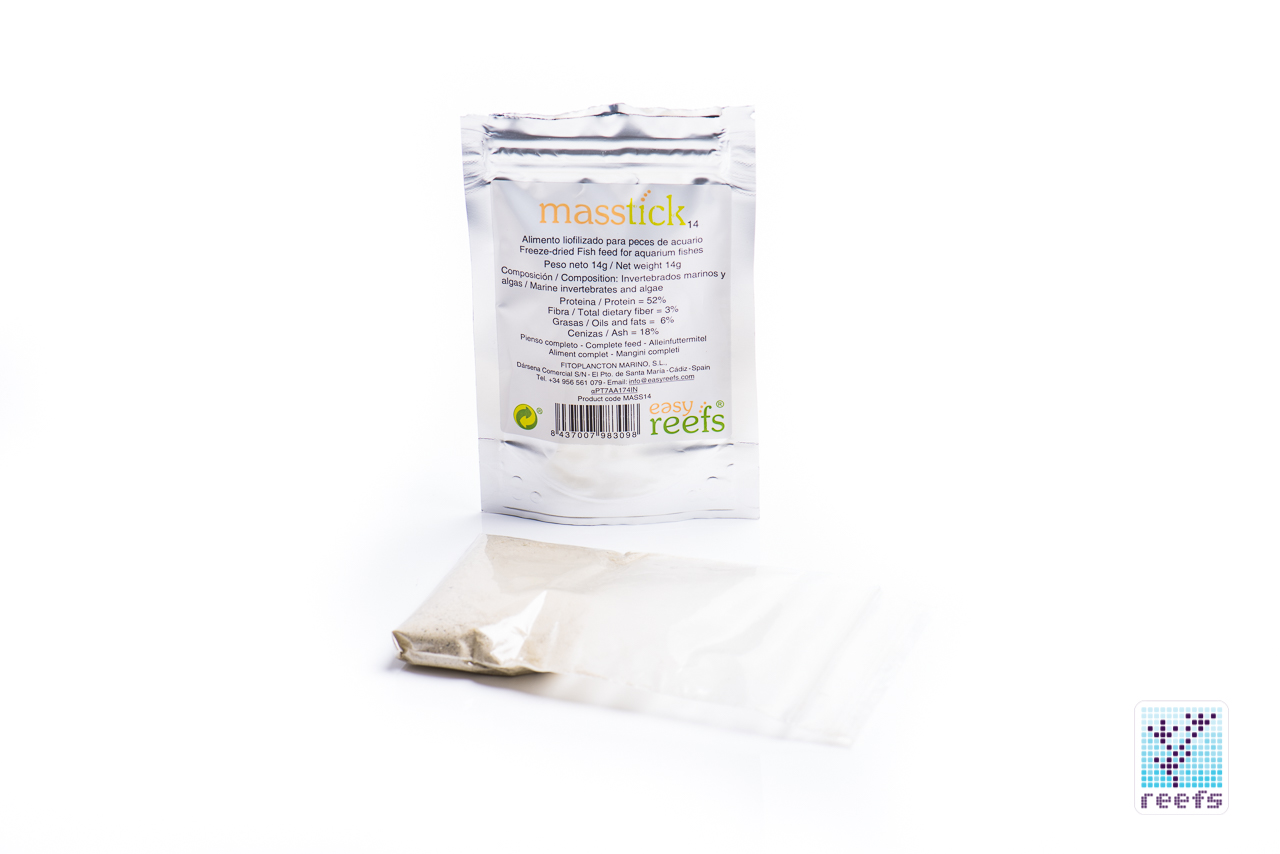
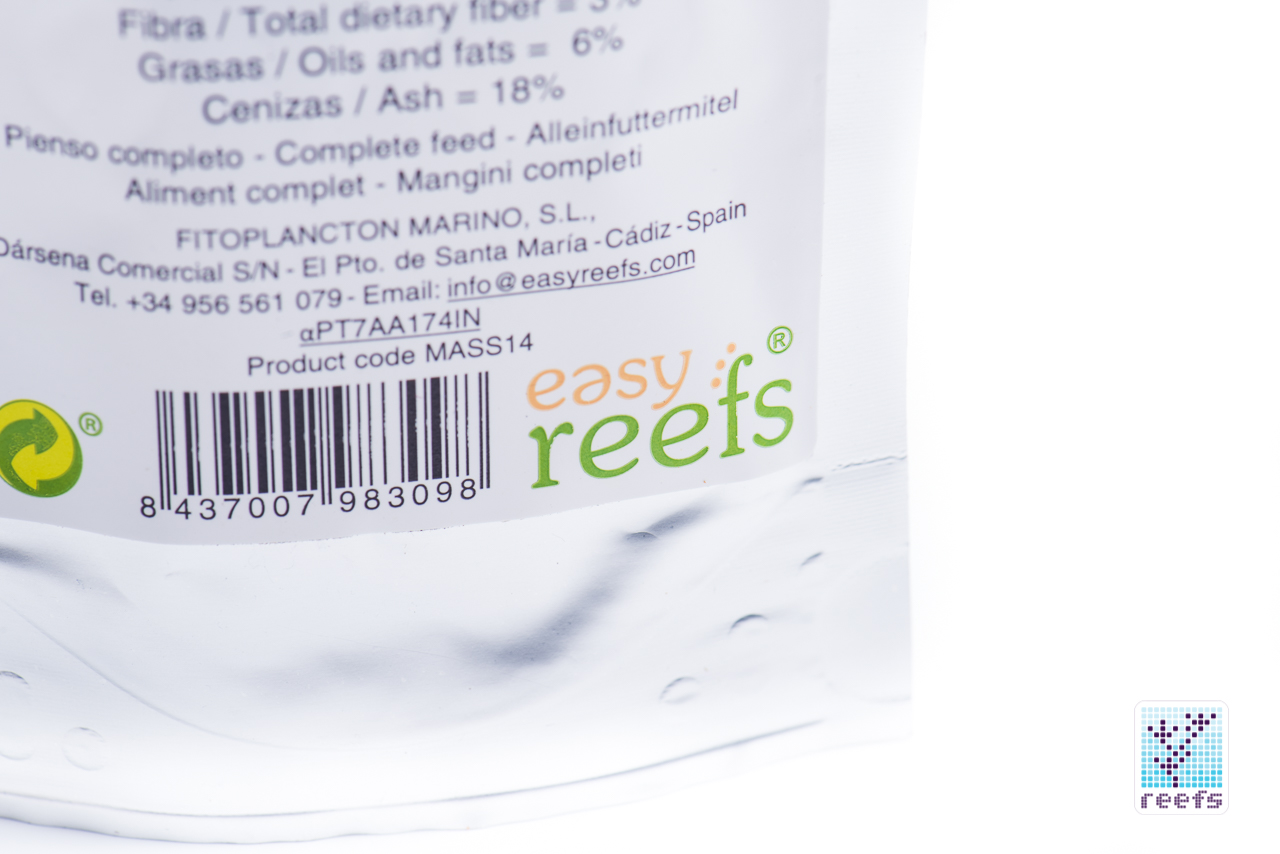
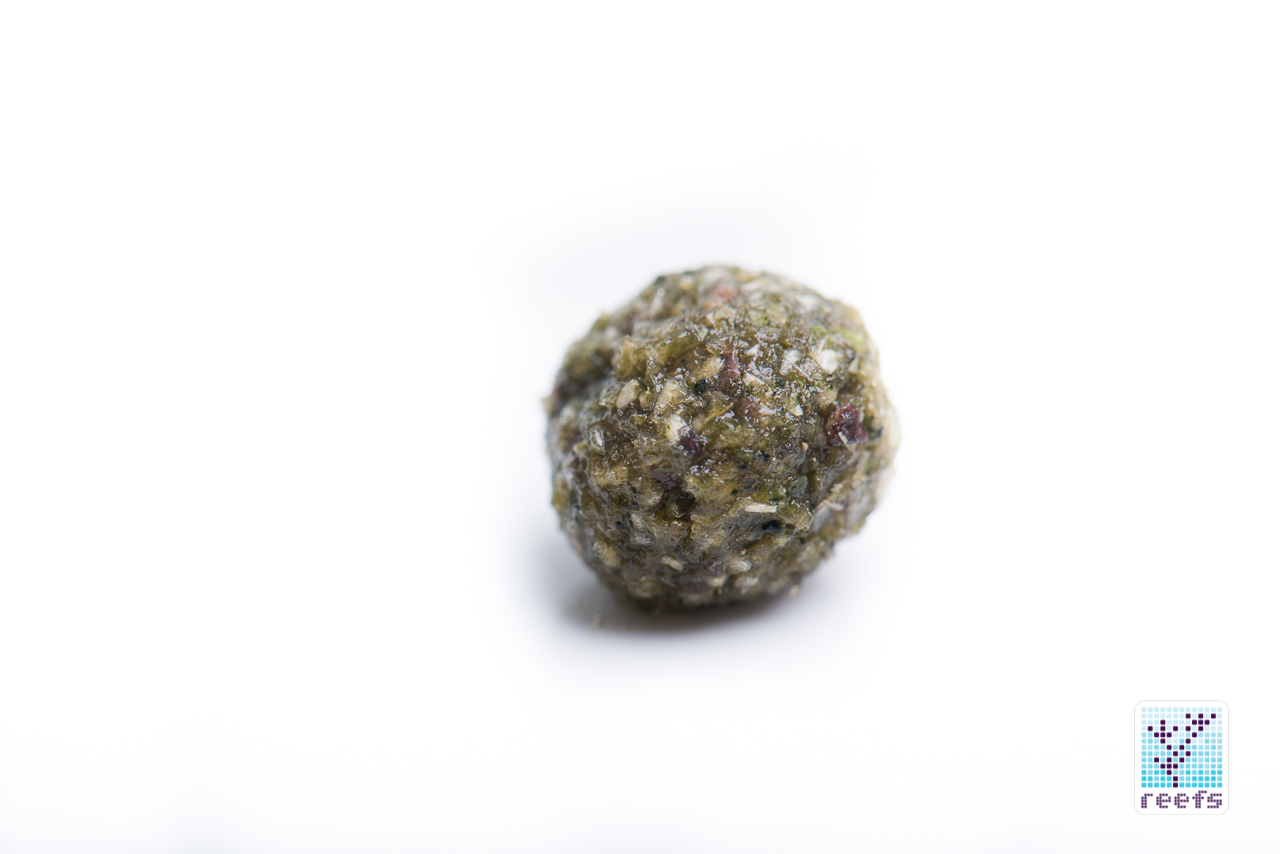
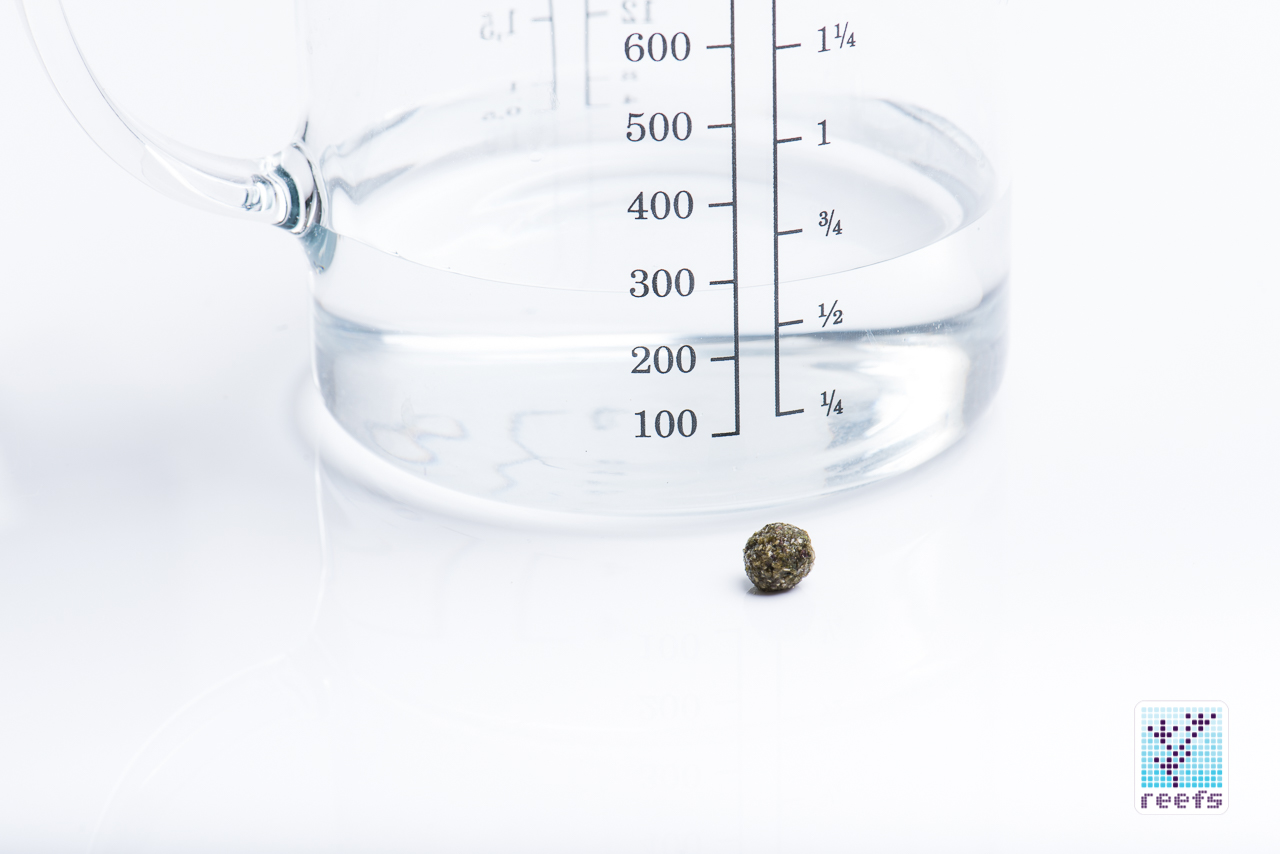
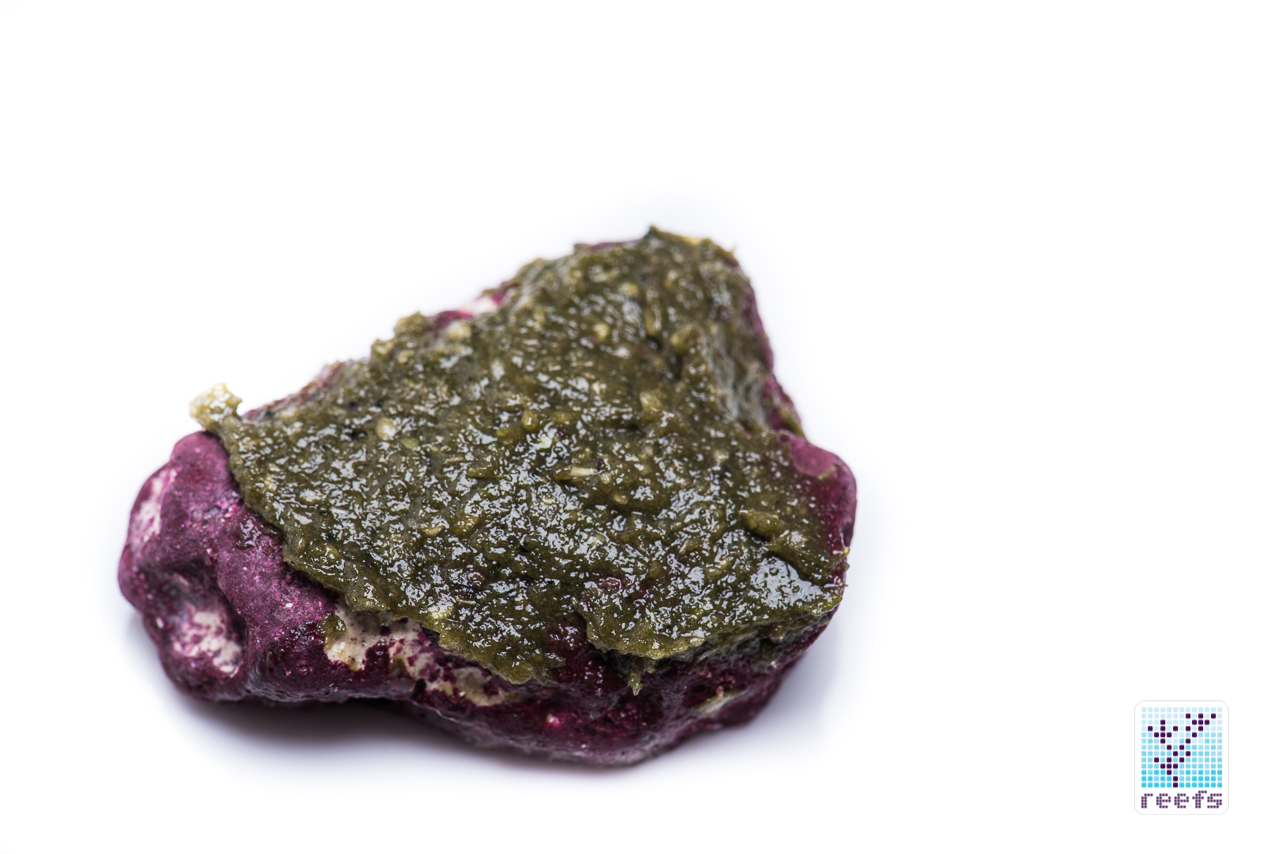
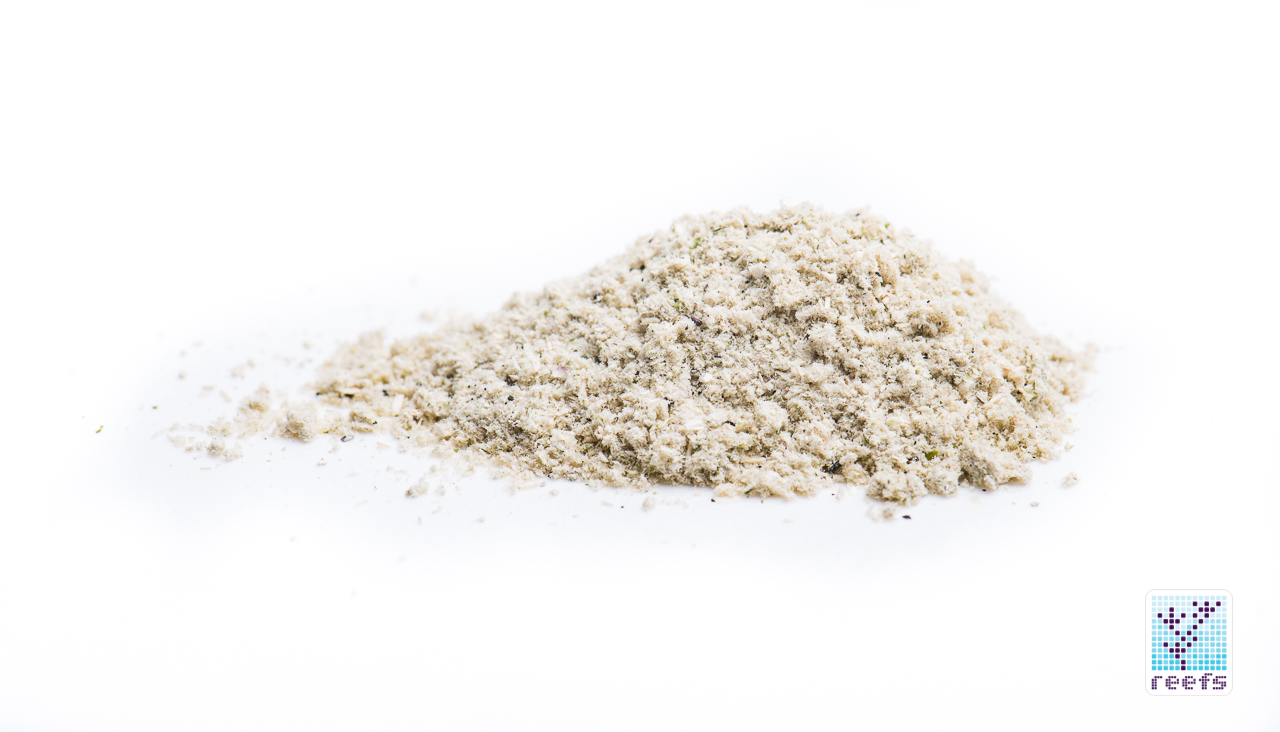
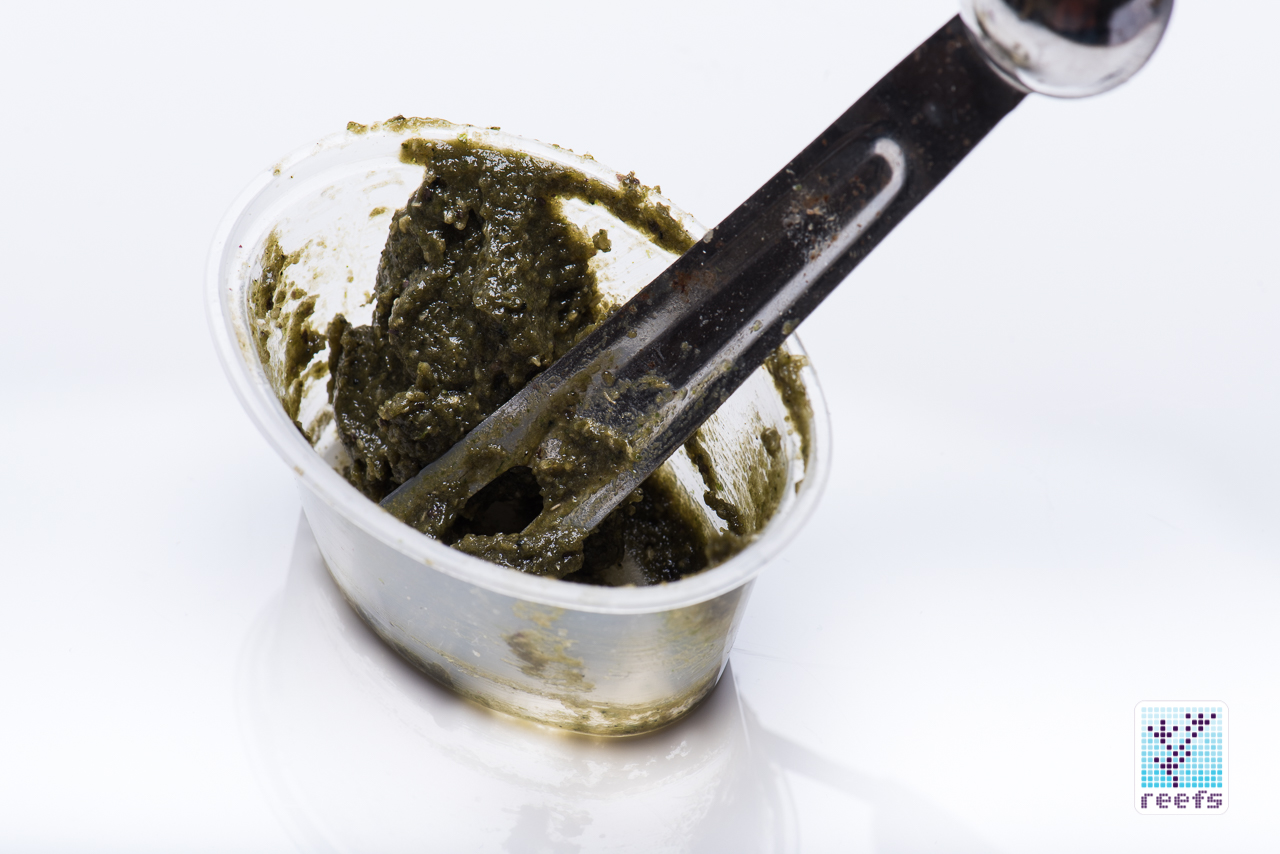
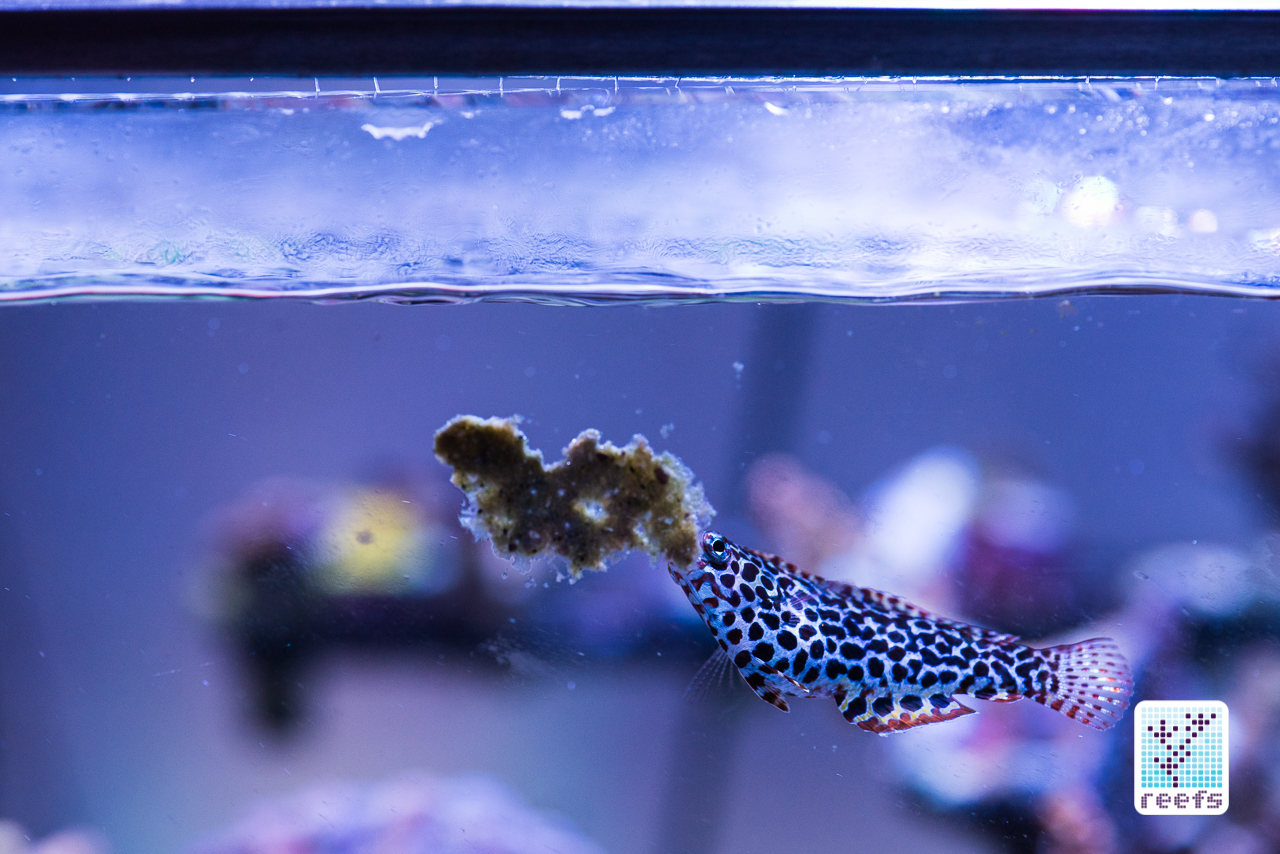
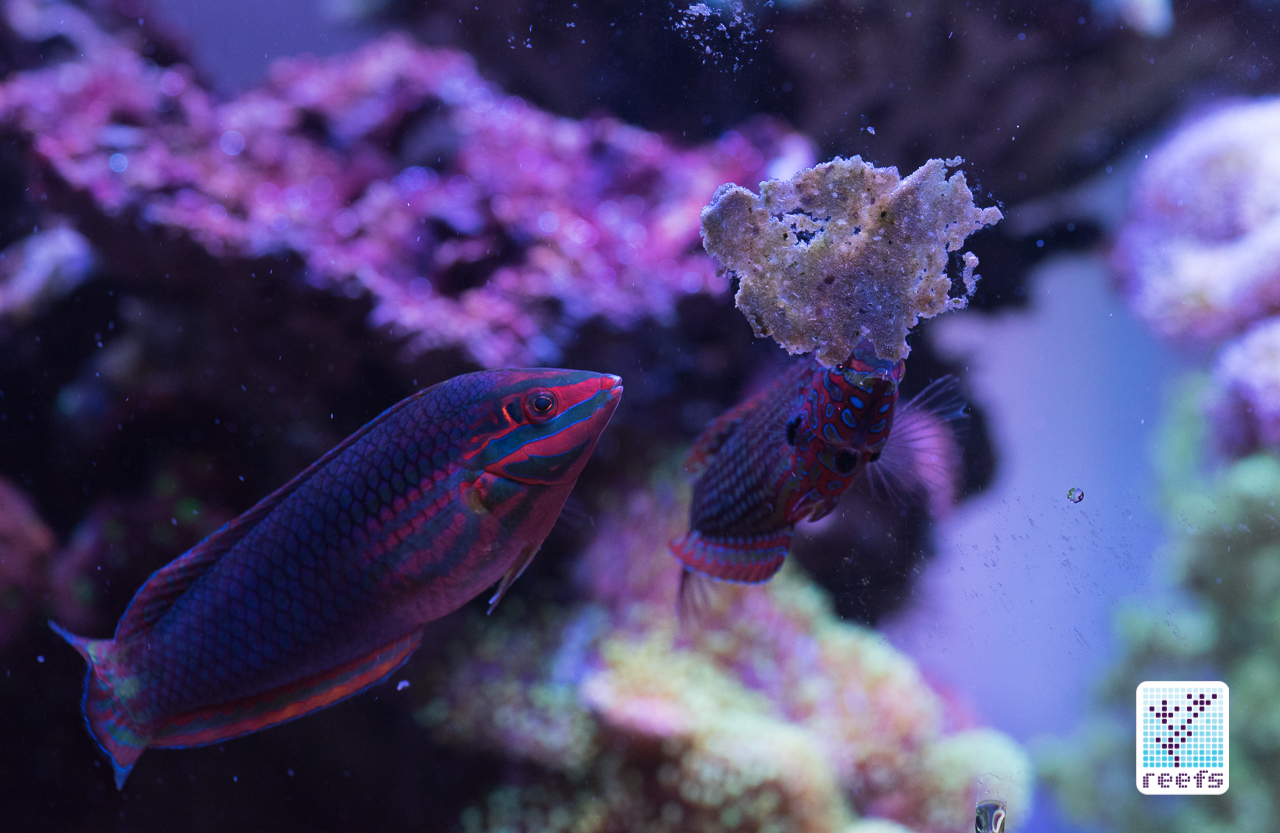
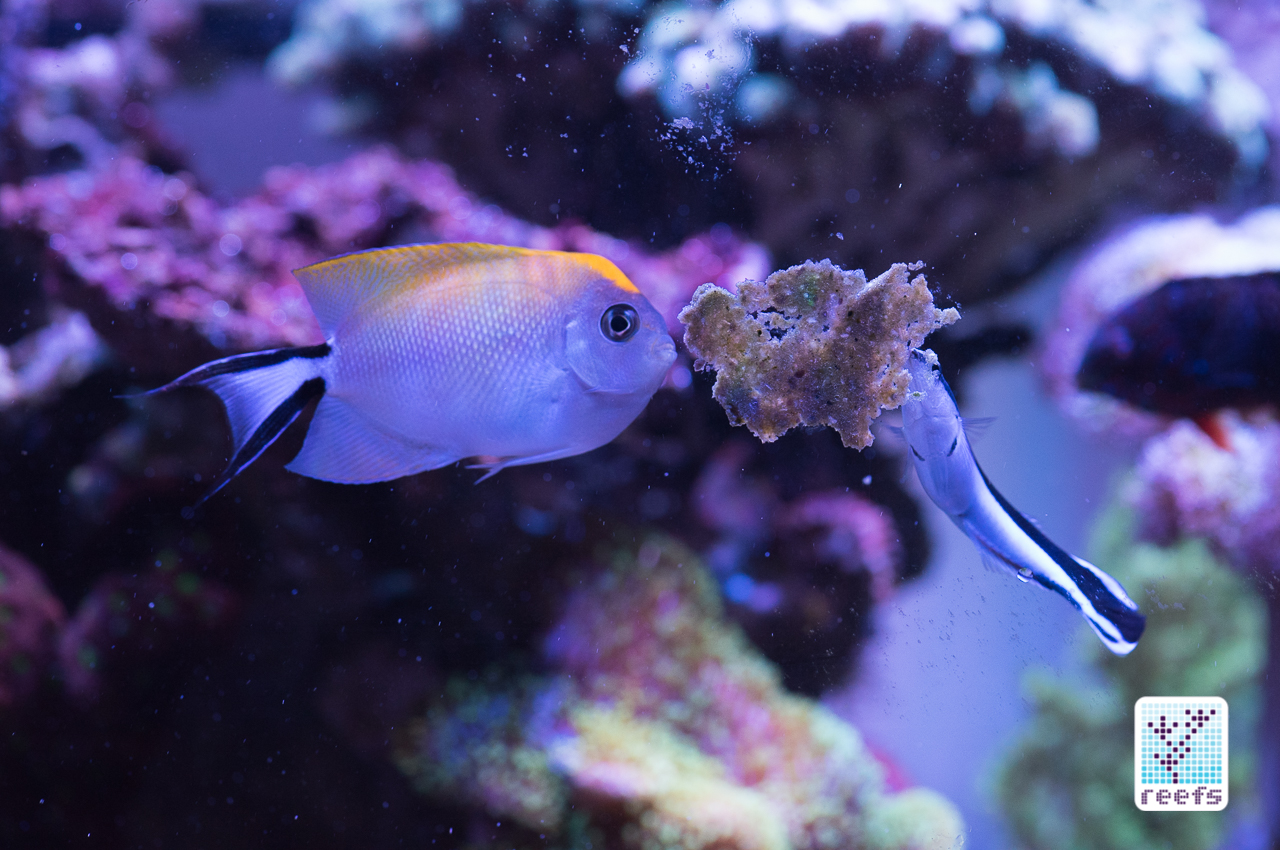
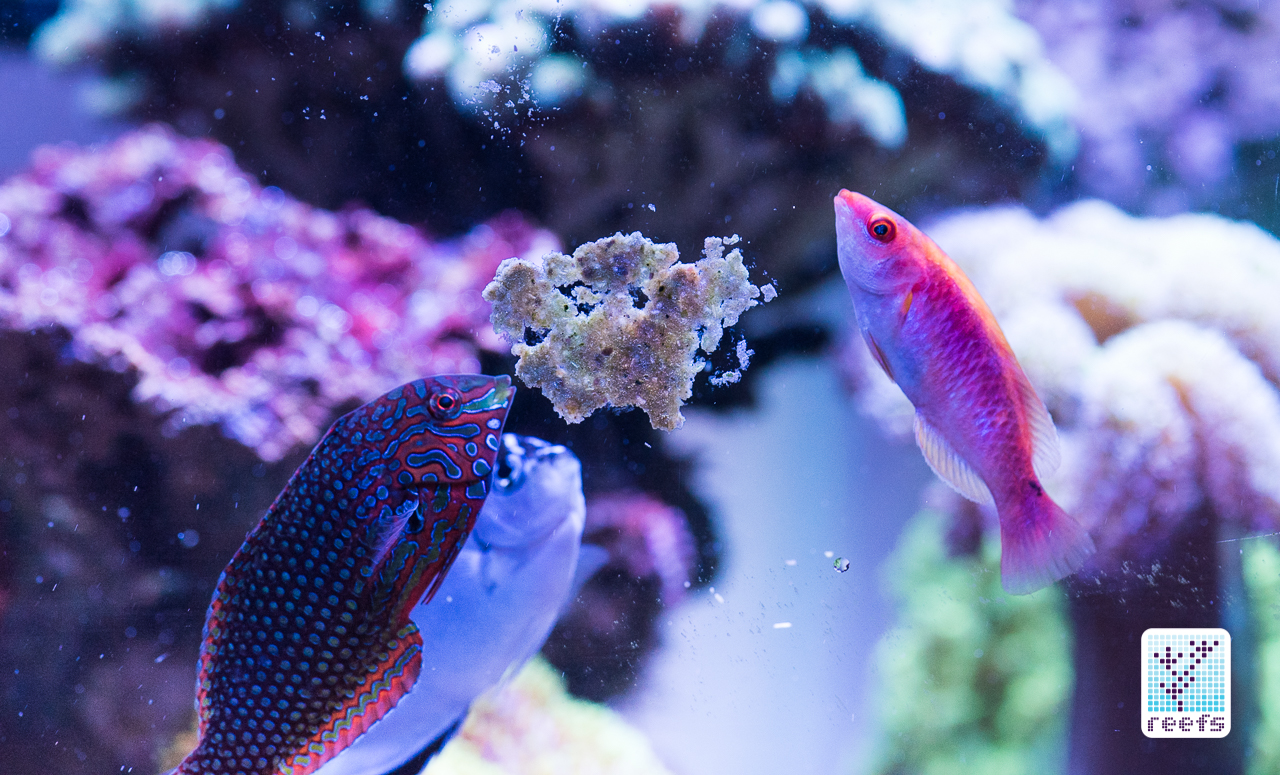
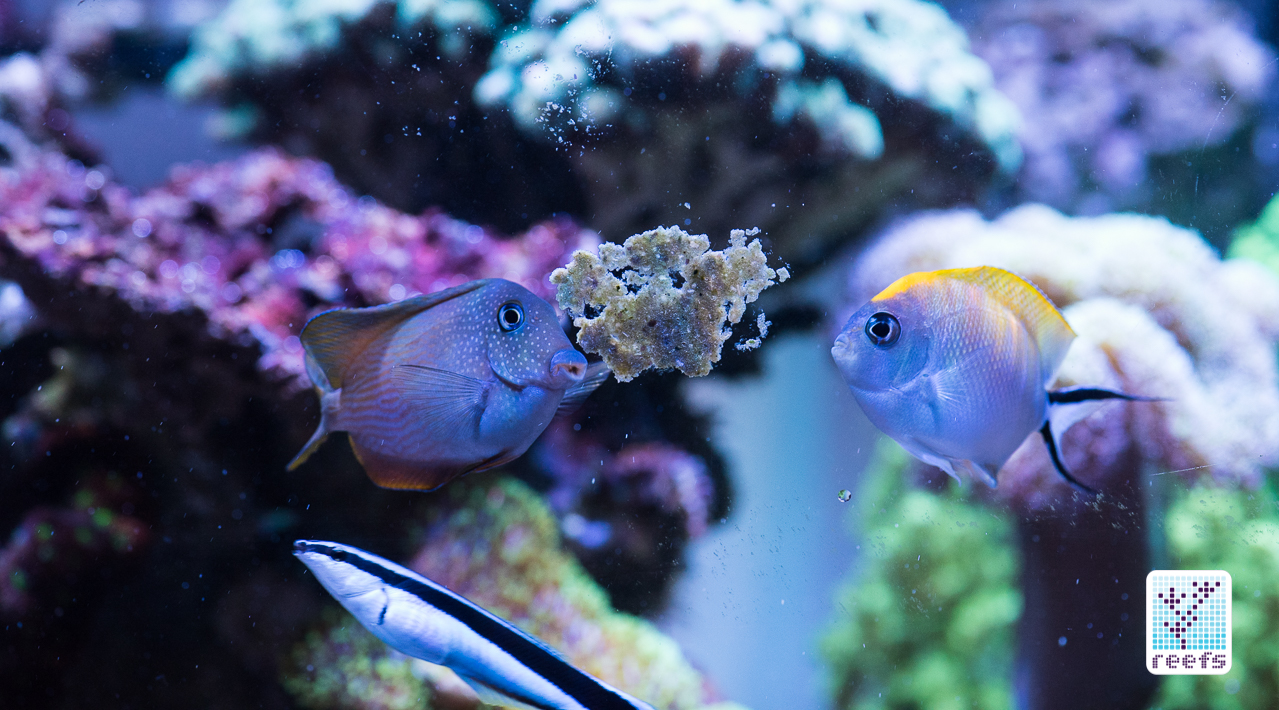
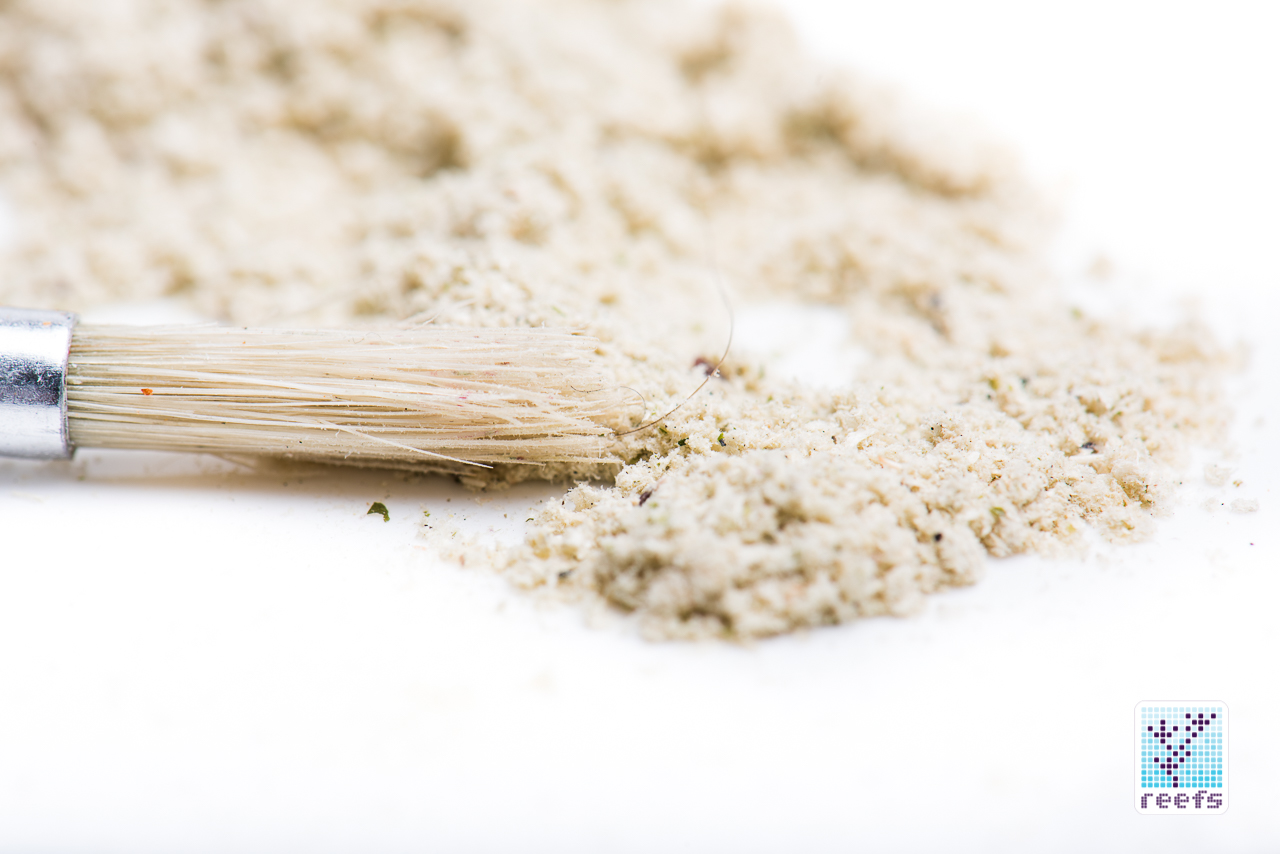








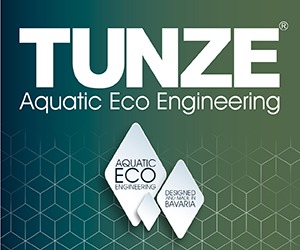
Have you tried this to feed Bicolour Angels?
Thanks much!